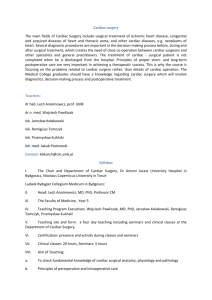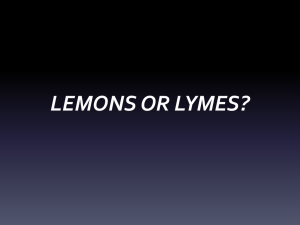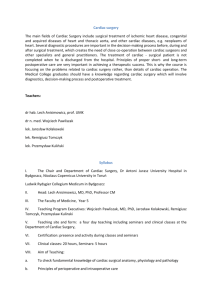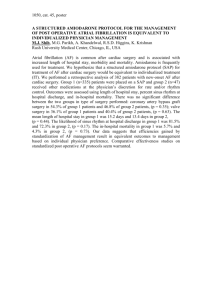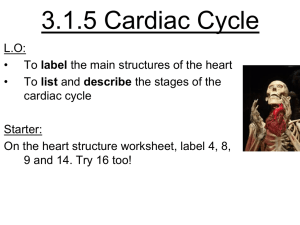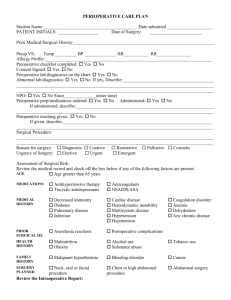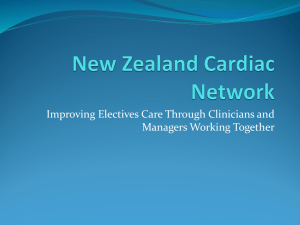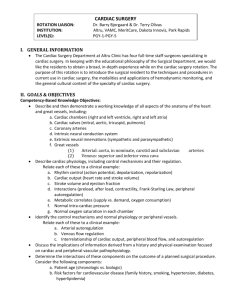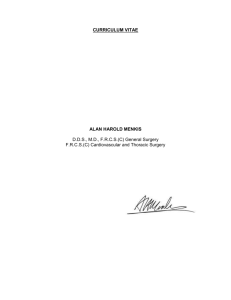Cardiac Surgery - Collegium Medicum UMK
advertisement
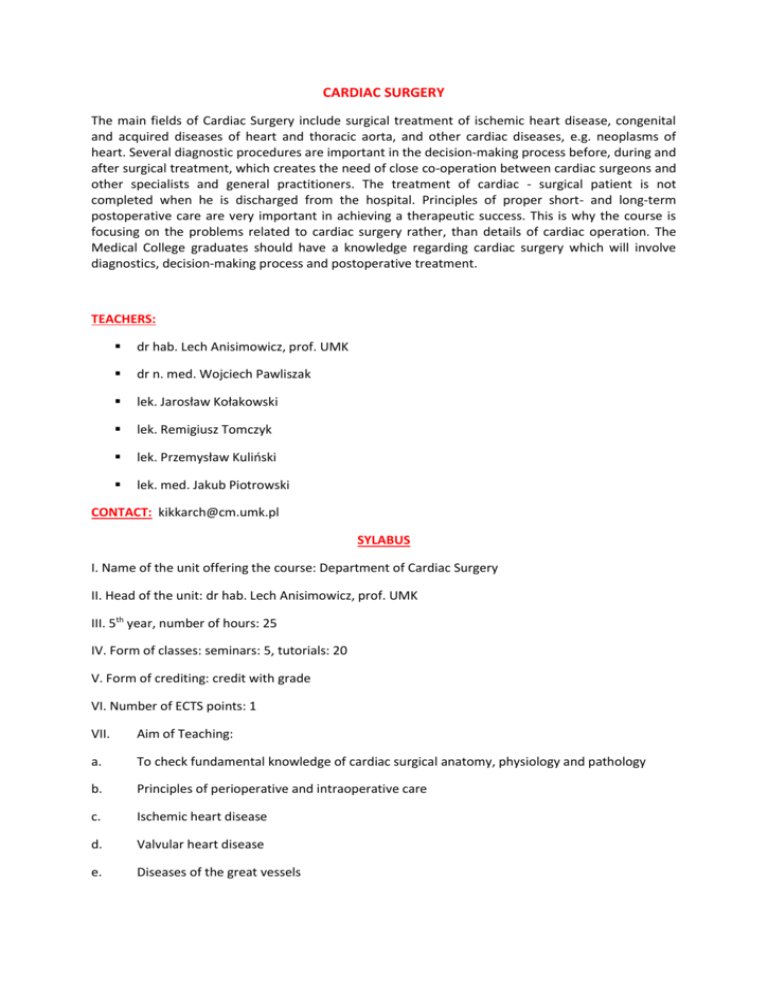
CARDIAC SURGERY The main fields of Cardiac Surgery include surgical treatment of ischemic heart disease, congenital and acquired diseases of heart and thoracic aorta, and other cardiac diseases, e.g. neoplasms of heart. Several diagnostic procedures are important in the decision-making process before, during and after surgical treatment, which creates the need of close co-operation between cardiac surgeons and other specialists and general practitioners. The treatment of cardiac - surgical patient is not completed when he is discharged from the hospital. Principles of proper short- and long-term postoperative care are very important in achieving a therapeutic success. This is why the course is focusing on the problems related to cardiac surgery rather, than details of cardiac operation. The Medical College graduates should have a knowledge regarding cardiac surgery which will involve diagnostics, decision-making process and postoperative treatment. TEACHERS: dr hab. Lech Anisimowicz, prof. UMK dr n. med. Wojciech Pawliszak lek. Jarosław Kołakowski lek. Remigiusz Tomczyk lek. Przemysław Kuliński lek. med. Jakub Piotrowski CONTACT: kikkarch@cm.umk.pl SYLABUS I. Name of the unit offering the course: Department of Cardiac Surgery II. Head of the unit: dr hab. Lech Anisimowicz, prof. UMK III. 5th year, number of hours: 25 IV. Form of classes: seminars: 5, tutorials: 20 V. Form of crediting: credit with grade VI. Number of ECTS points: 1 VII. Aim of Teaching: a. To check fundamental knowledge of cardiac surgical anatomy, physiology and pathology b. Principles of perioperative and intraoperative care c. Ischemic heart disease d. Valvular heart disease e. Diseases of the great vessels f. Surgery for cardiac arrhythmias, congenital heart disease, pericardial disease, neoplasms of the heart g. Circulatory support and heart transplantation VIII. Topic of classes: a. Fundamental knowledge of cardiac surgical anatomy, physiology and pathology b. Principles of perioperative and intraoperative care: Preoperative evaluation for cardiac surgery, Monitoring and anesthesia, Extracorporeal circulation, Transfusion therapy and blood conservation, Deep Hypothermic circulatory arrest, Myocardial protection, Postoperative care of cardiac surgical patient, Cardiopulmonary resuscitation, Temporary circulatory support, Late complications after cardiac surgery c. Ischemic Heart disease: Indications for coronary revascularization, Role of PCI and CABG, Methods of surgical coronary revascularization: (CABG, OPCABG, MIDCAB, TECAB, TMLR), Surgical treatment of complications of acute myocardial infarction: (postinfarction ventricular septal defect, free wall rupture, acute mitral regurgitation), Ischemic mitral regurgitation, Left ventricular aneurysm. d. Valvular heart disease: pathophysiology, Indications for surgical treatment, valve repair, valve replacement, Surgical treatment of endocarditis. e. Diseases of great vessels: Aortic dissection, Ascending, arch and descending thoracic aortic aneurysm, Traumatic lesions of great vessels, Surgery and endovascular techniques, Pulmonary thromboendarterectomy f. Congenital heart disease in pediatric and adult patients, pericardial disease, Cardiac neoplasms g. Cardiothoracic transplantation and chronic circulatory support: Heart transplantation, Heartlung and lung transplantation, Circulatory support, Total artificial heart, other surgical options for heart failure, Tissue engineering for cardiac surgery X. Literature: a. TSRA Review of Cardiothoracic Surgery http://www.tsda.org/resources/tsra-review-of-cardiothoracic-surgery/ b. Multimedia Manual of http://mmcts.oxfordjournals.org Cardiothoracic Surgery. Editor: Marko Turina RULES AND REGULATIONS Clinical classes and seminars take place in the Chair and Department of Cardiac Surgery, Nicolaus Copernicus University Collegium Medicum. The Department is located at the dr A. Jurasz University Hospital Nr 1 Bydgoszcz. The course in cardiac surgery in English for students of the fifth course of Medical Faculty takes four days, and involves 20 hours of classes (4h daily), and 5 hours of seminars (1h15m daily). The subject and details of the course are listed in syllabus. Each student should be prepared by reading the listed subjects before the course, to be able to participate actively (sources available on-line are listed in syllabus). Active participation and writing a test is required to complete the course. The course starts every day, according to the schedule for each group, at 8.30 am. Each student should be equipped with white medical coat, stethoscope, and shoes for indoor hospital use. The program includes short breaks for relax, and small meal (not provided)
